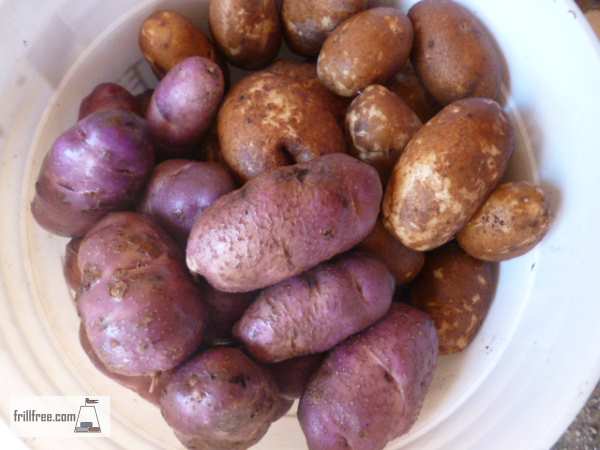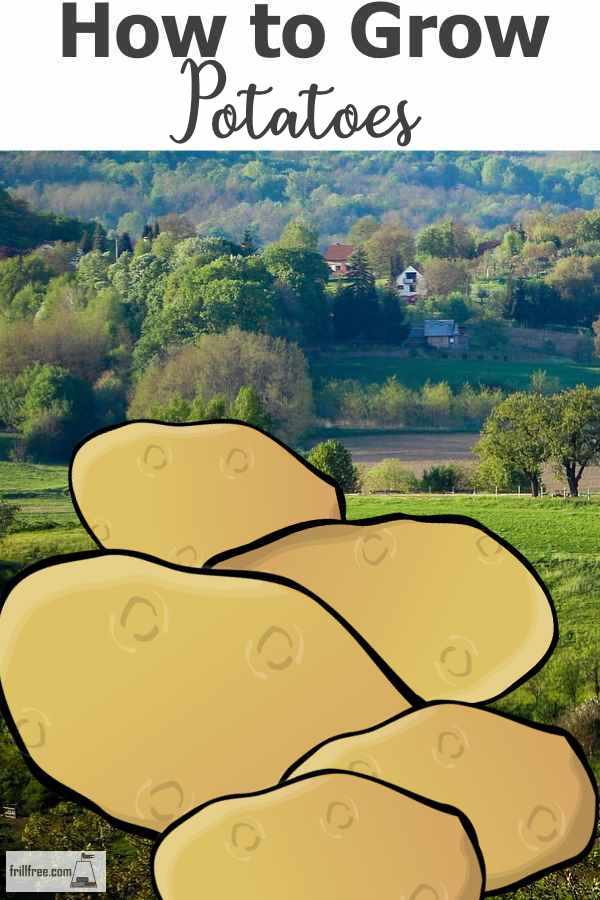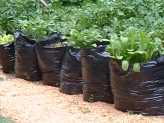- Homesteading
- Growing Vegetables
- How to Grow Potatoes
How to Grow Potatoes
Those nutritious, delicious spuds
Potatoes are such an easy crop to grow, and the flavor of
your own home grown spuds is beyond comparison.
Due to the fact that you can buy many kinds of potatoes in stores, such as Russet Burbanks and other familiar types, it might be much more interesting to find some unusual kinds to grow in your organic garden.
Whichever kind you decide on, I recommend getting them from a reputable grower as seed potatoes, which have been inspected.
There is no point in going to all the effort of growing them only to find that they have all got scab and are inedible – as the tubers grow under the soil, you won’t know this from looking at the green growing tops, because they’ll look healthy and happy, even while the fungus is infecting the potatoes.
German fingerlings, purple fleshed kinds, early pink skinned or white types are available; these are a treat for the palate; sweet, flavorful and unusual, the dinner table will never be the same.
To grow any potato successfully, there are a few main factors:
First is full sun, away from any competing tree roots;
Second, it’s important to supply moisture continuously. The infamous ‘hollow heart’ is caused by a lack of moisture at a critical point in the plants growth.
Third, mulch to cover the tubers – green potatoes can be carcinogens so ensure that no sunlight reaches the roots either during growth, or in storage.
The best soil for potatoes is nutrient rich and porous.
It’s important to have some way of pulling the soil up around the plant, both to support the growing vine, and to cover any new potatoes and protect them from sunlight.
If this is your method, plant the seed potatoes about three or four feet apart, to give you enough soil in the ‘walkways’ to pull up with a hoe.
To plant seed potatoes there are a few tricks to how to choose them, and give them the best chance of producing a good crop.
 Harvesting Potatoes - store with the soil on, and dry. They need space between them so they don't start to rot
Harvesting Potatoes - store with the soil on, and dry. They need space between them so they don't start to rotThere have been tests on growing potatoes right on a driveway, with only a covering of straw, piled around the plant for support and to hold moisture.
The way the potatoes grow is on stolons coming out of the buried stem, so continuing to cover the plant ever higher gives more places for the stolons to emerge.
I’ve seen crops of incredible spuds grown in tires stacked on top of one another; as the plant grows, another tire goes on, and straw or chopped leaves fill it.
When the vine shrivels in August, the tires are unstacked, and potatoes come out in handfuls, all clean and ready for storage. This no dig, no fuss method of growing spuds has my vote. I usually grow mine in plastic bags, which produces similar results.
Store only when fully dry. They'll start to rot if they are wet at all. You've never smelled anything worse than rotting potatoes! They need to be in a cool, dark place so they don't start to grow or go green. If they sprout, you can still eat them if you scrub the eyes off, but don't eat them if they're green as they are carcinogenic.
However you decide to grow potatoes, you will know that they require very little care to provide nutrition for your table.
















